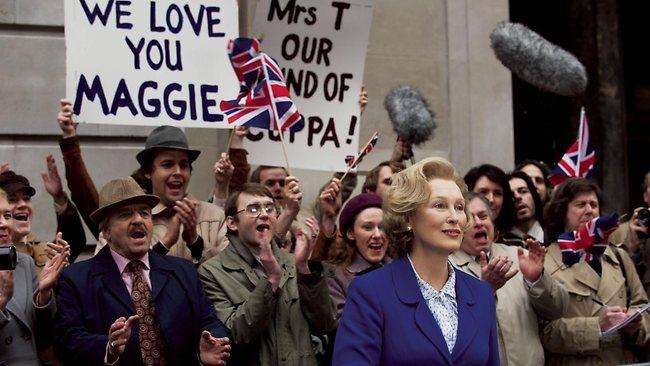Political leaders of the pack
TWO of the great political figures of the 20th century inspired two of the finest political films of recent years.

TWO of the great political figures of the 20th century inspired two of the finest political films of recent years.
Margaret Thatcher and John F. Kennedy had little in common apart from their popularity and an extraordinary capacity for moral strength and resolution. Each had to deal with a military emergency from which each emerged (rightly or wrongly) as the acknowledged victor. It is instructive to compare their behaviour, their methods and their temperaments under pressure.
Thirteen Days (Tuesday, 8.30pm, M Masterpiece) is a riveting account of the Cuban missile crisis, directed by Roger Donaldson, who was a 16-year-old Sydney schoolboy when the crisis developed in 1962, bringing the world to the edge of Armageddon. JFK is brilliantly impersonated by Bruce Greenwood, but most of the story is told through the eyes of White House aide Kenny O'Donnell (Kevin Costner), Kennedy's right-hand man.
The unfolding story was one of the endless uncertainty about Soviet intentions, of secret diplomatic initiatives and media management - all marked by tensions between Kennedy and his joint chiefs, most of whom he distrusted. Donaldson has made a gripping and, I think, genuinely important film, based on authentic White House tapes.
Meryl Streep's performance as Thatcher in The Iron Lady (Saturday, 8.30pm, M Masterpiece) is a celebrated tour de force - dark, complex, nuanced and utterly convincing, bound to confirm Thatcher's admirers in their belief that she was Britain's saviour and her many enemies that she was a wrecker, a fanatic and a destroyer of the nation's social fabric.
Director Phyllida Lloyd and her screenwriter Abi Morgan have brilliantly interwoven Thatcher's personal story with a graphic portrayal of the mood and spirit of the time. There's a telling moment when she is being briefed by her navy chiefs during the Falklands war and has to decide the fate of the Argentine cruiser General Belgrano. The ship was steaming away from the Falklands and no longer a threat to the British.
After a moment's thought, Thatcher breathes the words "Sink it" - an order that would cost the lives of about 300 sailors and greatly strengthen her chances of victory in the next election.
Martin Scorsese's The Last Temptation of Christ (Sunday, noon, M Masterpiece) provoked fierce controversy on its release in 1988 - not so much on grounds of irreverence, as its portrayal of Jesus is both humane and sympathetic, but because of the implication that, like other men, he could be tempted by carnal desire.
The film opens with Jesus the carpenter (Willem Dafoe) making crosses on which the Romans would crucify rebellious Jews, and ends with the notorious temptation sequence, depicting the human love and gratification that Jesus sacrificed to fulfil his destiny.
CRITIC'S CHOICE
The Iron Lady (M)
4 stars
Saturday, 8.30pm, M Masterpiece
Thirteen Days (MA15+)
4 stars
Tuesday, 8.30pm, M Masterpiece
The Last Temptation of Christ (M)
4 stars
Sunday, noon, M Masterpiece


